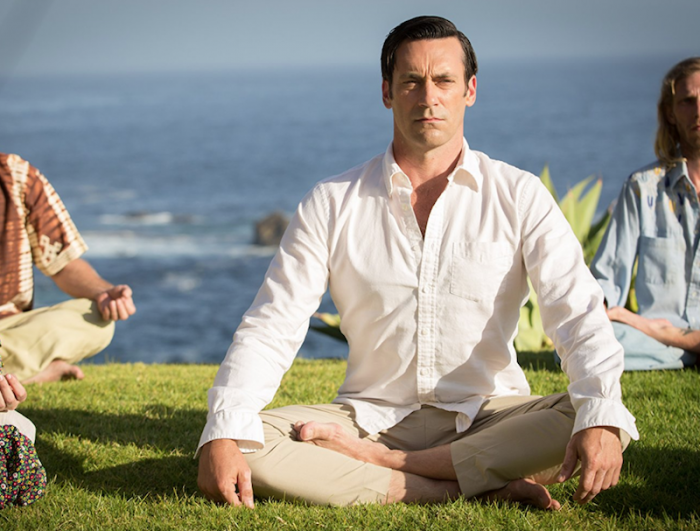I studied existential philosophy in college and attended Naropa University, the Buddhist-inspired school, as a visiting student for a semester.
After college, I did a “total 180”—or at least that’s the way many of my liberal arts college friends saw it.
I went from studying abstract existential theory to starting a business, from meditation and theories to start-ups and strategies.
In the mid-2010s liberal arts environment, people generally saw (and probably still see) social activism and entrepreneurship as opposing forces at war. A significant chunk of college protests in that time period were about that conflict to some degree, whether the outrage was directed toward the world at large or toward various institutions.
Many friends from college respected me as a student of philosophy—but would now condemn me as an entrepreneur. They would see my transition from philosopher to entrepreneur as inauthentic—a sign that I gave up on my values and beliefs.
I speak in “woulds” because I know not to discuss entrepreneurship with most people in the liberal arts world, unless I’m close with them or think they would understand. My Facebook feed includes many discussions on “villains,” such as Elon Musk and Jeff Bezos, so it’s not a place where I can share my values ridicule free. When I’ve tried to discuss mindful business with these friends in the past, I’ve been shut down and snarked at.
To some people, all business is inherently evil—even if it has a higher social mission.
Whole Foods takes advantage of employees. Does it matter that they have an entire foundation dedicated to fighting poverty? Patagonia had a human trafficking problem. So what if they give 10 percent of their profits to environmental groups? Google is taking over the world. Who cares if they recently invested 11.5 million to support racial justice causes?
Many of us, especially in well-educated circles, are guilty of thinking of social contribution as something totally removed from the business world.
A new acquaintance of mine, for example, believes she has nothing in common with me because I’m a “money maker.” Therefore, I must not think critically or deeply about the world. Also, I’m probably lacking compassion and a soul. She gifted me a book on “how to live,” not realizing I majored in how to live, have thought about it deeply, and spent a year writing a thesis on it.
What I’m doing as an entrepreneur is not different, values-wise, than what I was doing in philosophy.
In college, I was planning and practicing how to live on a “meta” level, so I could set myself up for living a life of meaning and difference-making. I valued depth, meaning, learning, growing, making an impact, and creating. I’m still living according to these same values, but I’m much more zoomed in and concrete, and, as a result, more authentic.
In fact, my problem in college was that I was too abstract. Even my philosophy professors encouraged me to get more down-to-earth with my thesis, while I argued that creativity is the most important thing in the world.
I still think creativity is the most important thing in the world, but I’m more interested in living out that belief than theorizing about it. And my business is currently how I manifest much of my creativity (in addition to artistic activities in my free time).
I help wellness-based businesses, ranging from beginner life coaches to growing meditation apps, with business growth through authentic marketing strategies. Many people, especially in the activist communities, hate marketing and see it as a manipulative activity that subtracts value from the world.
I used to think that, but I disagree now for two main reasons:
- Marketing gives life to our creative works. If I wrote a book and had zero marketing attached to it—no readers, no title, no book cover, no back cover description, no author bio, no interviews, no panels, no forums—it would barely even feel real. Most people who have released serious creative work realize how important marketing is only after they’ve put their first work out there.
- Marketing is another expression of creativity. It adds context, value, and meaning to the story we’re telling. A blog or YouTube channel doesn’t usually feel like marketing, but can play that role and be creatively satisfying.
I wrote a screenplay and published a philosophy of creativity e-book on Amazon at the end of college. No one really read my work, except for my family, advisors, and the occasional random person. I didn’t expect anyone to read my work, nor did I write these pieces with a reader in mind—so I wasn’t disappointed.
But looking ahead, I didn’t want my life to be a process of me writing and creating things that no one paid attention to or cared about. What I wanted was the opposite of that—using my creativity to make a big impact in the world with issues I care about.
Marketing has taught me how to make that happen.
As changemakers, whether we’re activists or entrepreneurs, we ought to fully embrace marketing. Doing so will only help us make the meaningful difference in the world that we seek to make. And as we embrace marketing more and more, we also might grow to love it.











Read 1 comment and reply